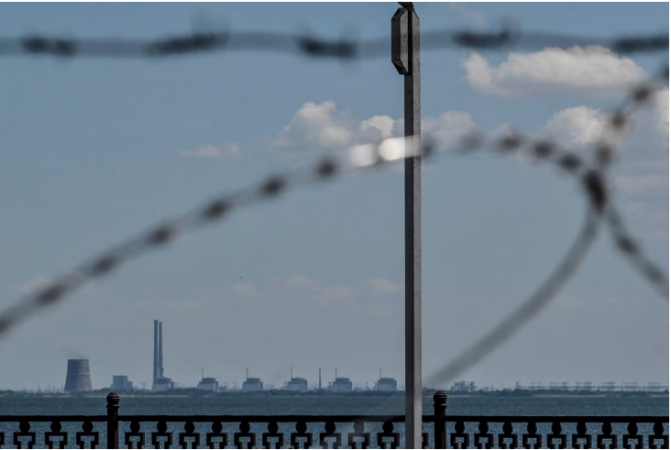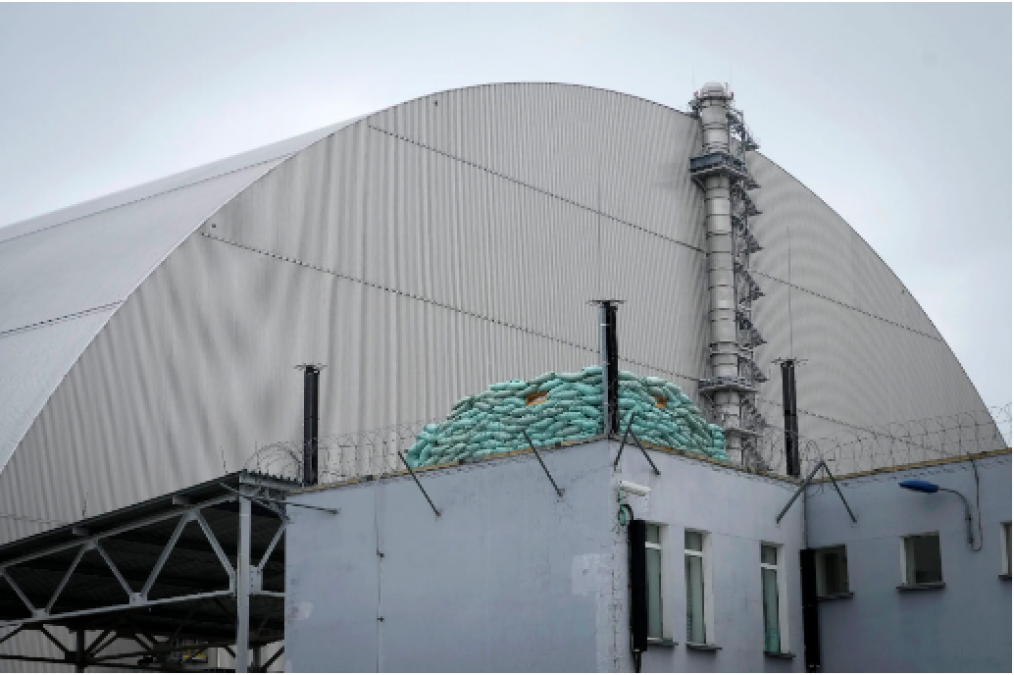
Ukraine: The UN nuclear chief warned that Europe's largest nuclear power plant in Ukraine is "completely out of control" and calls on experts from Russia and Ukraine to stabilize the situation and avoid nuclear premises as soon as possible requested for permission to visit.
The International Atomic Energy Agency's director-general, Rafael Grossi, told the Associated Press that the situation at the Zaporizhzhya plant in the southeastern city of Enerhodar, seized by Russian troops in early March, was becoming increasingly dangerous, shortly after the February 24 invasion of Ukraine.
They claim that "every nuclear safety principle has been violated" at the plant. "What is at stake is extremely serious, serious and dangerous."
Grossi cited several security breaches at the plant, saying it was located "in an area where active warfare is taking place," close to Russian-controlled territory.
The physical integrity of the plant has not been respected, he claims, citing shelling when it was taken down at the start of the war and ongoing information from Ukraine and Russia accusing each other of the attack on Zaporizhzhya.
The plant is under Russian control, but its Ukrainian employees continue their nuclear operations, resulting in inevitable moments of friction and perceived violence, he said.
While there are few contacts with IAEA employees, he describes them as "faulty" and "porous".
Grossi said the supply chain of equipment and spare parts has been disrupted, "so we're not sure the plant is getting everything it needs." The IAEA must also conduct significant inspections to ensure that nuclear material is safe, "and there is a lot of nuclear material to be inspected," he said.
"When you put it all together, you have a list of things that should never happen in any nuclear facility," Grossi explained. "That's why I've insisted from the start that we be able to be there to do this safety and security assessment, to repair and assist, as we did at Chernobyl."

On Monday, US Secretary of State Antony Blinken accused Moscow of using the plant "as a military base from which Ukrainians could fire, knowing they would shoot back for fear of accidentally launching a nuclear attack." Cannot run ... highly radioactive waste in the reactor or storage."
"It takes the concept of having a human shield to an entirely new and terrifying level," he said.
The Russian takeover of Zaporizhzhia sparked fears that the largest of Ukraine's 15 nuclear reactors could be damaged, triggering another emergency similar to the Chernobyl disaster of 1986, the world's worst nuclear disaster, which hit about 110 km from Kyiv. kilometers (65 mi) north.
Russian forces took control of the heavily contaminated site soon after the invasion, but handed it back to the Ukrainians at the end of March.
On 27 April, Grossi visited Chernobyl and tweeted that the level of security was "like a 'red light' blinking." However, he said on Tuesday that the IAEA had set up "an aid mission" in Chernobyl at the time, which "has been very, very successful so far."
According to Grossi, the IAEA should return to Zaporizhia, as it did at Chernobyl, to find out the facts of what was actually happening, to carry out repairs and inspections, and "to prevent a nuclear accident from occurring". .
The IAEA chief said he and his team needed security to access the plant, as well as urgent cooperation from Russia and Ukraine.
Each side wants the international mission to depart from different locations, which is understandable given territorial integrity and political considerations, he said, but there is some other pressure, and that is bringing the IAEA team to Zaporizhzhya.
"The presence of the IAEA will deter any act of violence against this nuclear power plant," Grossi said. "I am therefore requesting both sides to allow this mission to proceed, as an international civil servant, as the head of an international organization."
Grossi was in New York for a long-delayed high-level meeting to review the 50-year-old Nuclear Non-Proliferation Treaty, which aims to stop the proliferation of nuclear weapons and ultimately achieve a nuclear-free world.
Former chancellor of Germany claims that after meeting Putin peace in Ukraine can be possible
Blinken accuses Russia of nuclear 'sabre rattling'
Russian soldiers are killed in an "unexplained incident" at the occupied nuclear power plant